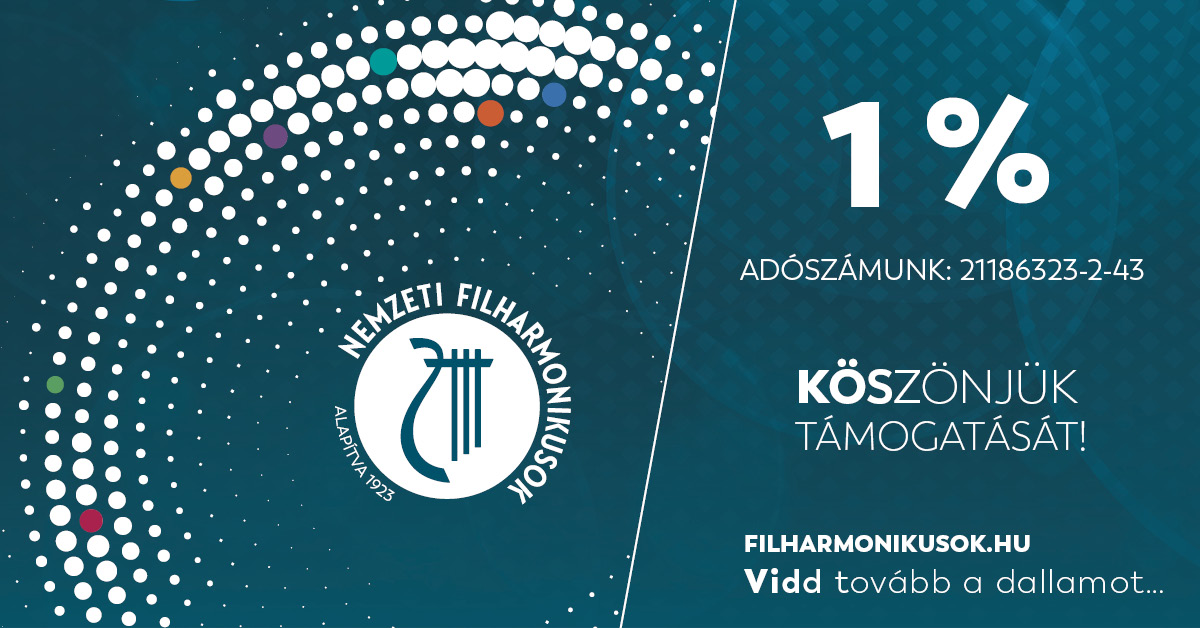
Budapest
VERDI: NABUCCO – Concert-format opera performance in four acts, with one intermission, in Italian
Opera season ticket 1
VERDI: NABUCCO
Concert-format opera performance in four acts, with one intermission, in Italian
Nabucco Amartüvshin Enkhbat
Abigaille Maria José Siri
Zaccaria Evgeny Stavinsky
Fenena, Nabucco’s daughter Szilvia Vörös
Ismaele, King of Babylon István Horváth
Anna, Zaccaria’s elder sister Ágnes Kristófi
Abdallo, officer of the Babylonian king Donát Varga
High Priest of Baal István Gáspár
Hungarian National Philharmonic Orchestra
Hungarian National Choir (choirmaster: Csaba Somos)
Conductor: Andrea Battistoni
The Hungarian National Philharmonic’s Opera season ticket for the 2025/2026 season begins with one of the biggest hits in opera in Verdi’s Nabucco. The four-act biblically themed work – the first by the composer to achieve genuine success – will be conducted by the excellent Italian maestro Andrea Battistoni, with the key roles to be performed by a Mongolian baritone, a Uruguayan soprano and an Italian bass: Amartüvshin Enkhbat (Nabucco), Maria José Siri (Abigaille) and Evgeny Stavinsky (Zaccaria). The diversity of the international cast for this concert-format performance will only be enhanced by the top members of the Hungarian singing community. The Hungarian National Choir (choirmaster: Csaba Somos) also plays a major part in the production.
Giuseppe Verdi was 29 years old when Nabucco, his first truly successful work and a recounting of the biblical story of the suffering of the Jewish people enslaved by the Babylonians, was premiered. At a stroke, he became a known and successful composer of musical theatre, while the work was adopted by the Italian people as a symbol of their desire for freedom. The concert-format performance of the four-act opera is a worthy opening to the Hungarian National Philharmonic’s Opera season ticket for 2025/2026.
The conductor the ensemble attracted for the production is Andrea Battistoni, who speaks the language of the Italian repertoire as his mother tongue, while the cast of superb soloists is international: the People’s Artist of Mongolia Amartüvshin Enkhbat sings Nabucco, the Uruguayan-born Maria José Siri portrays Abigaille and the Russian Evgeny Stavinsky appears as the high priest Zaccaria. Anyone who knows what an important role the famous Freedom Chorus has to play in the Opera will have no doubt as to the significance of the Hungarian National Choir (choirmaster: Csaba Somos) in this production.
*****
The Hungarian National Philharmonic’s audience is long accustomed to having an Opera subscription on offer each new season. It was during Zoltán Kocsis’s tenure as chief music director that the orchestra and choir began presenting works for the musical stage, an endeavor also essential to György Vashegyi’s programming concept. All three opera productions slated for the 2025/26 season will be performed in concert format. The works – one Italian, the others French and Russian – all date from the 19th century. Verdi’s Nabucco and Tchaikovsky’s Eugene Onegin are both immortal opera favourites, while the three-act Jean de Nivelle, by Léo Delibes, serves to continue the tradition of recent years of introducing new discoveries from music history.
Nabucco was composed in the 1840s, with Onegin and Jean de Nivelle premiering a few years apart some decades later, in 1878 and 1880, respectively. Successful in its time but hardly known today, the latter tells the story of a French historical figure from the 15th century. Adding to the appeal of these programmes on the Opera season ticket are the renowned star singers arriving from abroad to tackle the principal roles – such as the Mongolian Amartüvshin Enkhbat, France’s Cyrille Dubois and the Russian Alexey Markov, just to name those taking on the three title characters – with the production of Jean de Nivelle furthermore keeping up the tradition of performing these special French works by employing a cast of soloists comprised exclusively of noted international artists.
Conducting the Delibes will be György Vashegyi, with the excellent Italian musician Andrea Battistoni selected to take the helm for Nabucco and Onegin entrusted to one of Hungary’s most experienced opera conductors, János Kovács.


